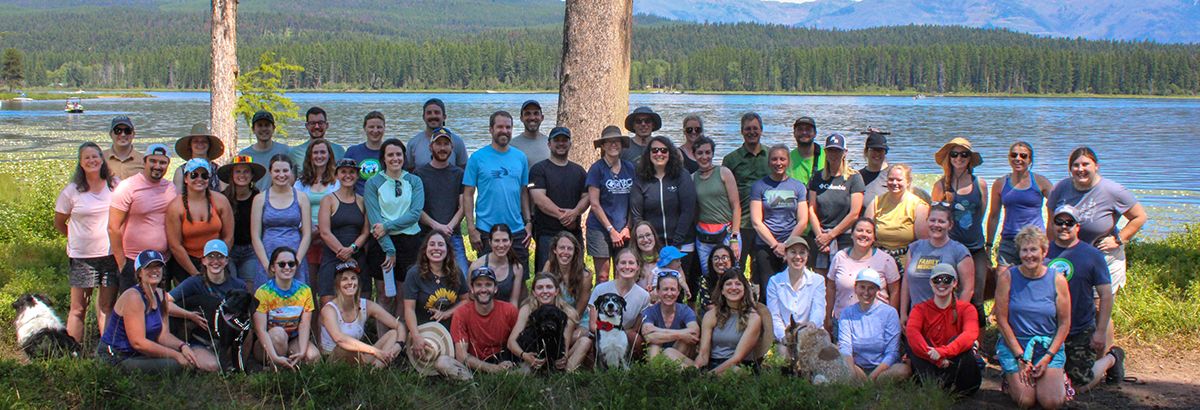Training Tracks
The FMRWM has various curricular tracks allowing residents to focus elective time in a structured way to gain additional skills. The tracks are not mutually exclusive, and it is possible to pursue more than one with proactive planning and scheduling.
-
Our Advanced Obstetrics Track provides interested residents with an enhanced foundation in obstetric skills to provide high quality care in rural and underserved areas. In addition to our core obstetrics curriculum, track residents:
- Are assigned additional continuity obstetric patients in clinic
- Do at least one core rural rotation at a site with an obstetric experience
- Pursue an additional 4 weeks of an obstetric-specific elective (ie: Perinatology, Rural OB, etc)
- Participate in and deliver dedicated didactic teaching on maternal and child health topics
- Pursue additional procedural training pertinent to obstetric care
- FMRWM has had a 100% acceptance rate for residents applying to Family Medicine Obstetrics Fellowship programs.
-
Our Rural Intensive Track (RIT) provides experience beyond our already strong core curriculum in rural Family Medicine. In addition to our requirements for all residents, RIT residents:
- Have 8 weeks of rural experience per academic year between core, elective, pediatric, and surgery rotations
- Complete a scholarly activity project focused on rural health
- Attend and submit proposals for regional and/or national meetings focused on rural health
- Expanded leadership and CME conference opportunities
-
Our newest curricular track, the American Indian/Alaska Native Healthcare Track, provides residents with enhanced experience in the care and service of Indigenous people in Montana. In addition to core program curriculum, residents in the American Indian/Alaska Native Healthcare Track:
- Participate in focused rotations with local partners including Confederated Salish Kootenai Tribal Health, Indian Health Service Browning Community Hospital, and All Nations Urban Indian Clinic. FMRWM will continue to further relationships and collaborate with additional tribal health systems throughout the state.
- Have the unique opportunity to deliver care in various types of health care settings dedicated to serving Indigenous populations.
- Have access to Indigenous and non-Indigenous mentors.
- Explore and identify ways to weave traditional healing into Western medicine.
- Complete an American Indian/Alaska Native-focused curriculum that is tailored to individual needs and backgrounds.
- Engage in scholarly activity, leadership, and policy focused on American Indian health.
- Attend educational events, including conferences of the Association of American Indian Physicians.
-
In the Rocky Mountain West, reproductive healthcare is often far from where patients live. Patients drive great distances in order to have an abortion, to have colposcopy and LEEP procedures, to have LARC placed and for miscarriage management.
In light of the 2022 US Supreme Court Decision in Dobbs v. Jackson Women’s Health, FMRWM endorses the statements of the and the . We also acknowledge that our faculty and residents hold a diversity of beliefs on abortion and we respect each other in those beliefs. Abortion remains legal in Montana and has been recognized as a protected right under the Montana State Constitution. An overview of the legal status of abortion in Montana is available .
FMRWM received a RHEDI (Reproductive Health Education in Family Medicine) grant in 2019 to develop abortion training. FMRWM is committed to providing residents with the training needed to serve rural communities, and to sustain a full spectrum reproductive health curriculum, including abortion training for interested residents.
FMRWM Reproductive Health Curriculum for all Residents:
The FMRWM Reproductive Health Curriculum spans all years of training. Experiences include time in clinic, procedural workshops, didactics and a dedicated Gynecology rotation in the PGY1 year. Goals of the curriculum include:
-
Expose all residents to pregnancy dating ultrasound, long-acting reversible contraceptive (LARC) insertion and removal, and medication abortion care (as an opt-out experience).
-
Train residents to provide supportive, non-judgmental pregnancy options counseling to pregnant patients/couples/families.
- Conduct didactic and experiential training around various reproductive health topics, including integrating medication abortion (MedAB) and medical and surgical management of early pregnancy loss.
FMRWM Reproductive Health Track Curriculum:
Residents opt-in to this track early in the PGY2 year and training is longitudinal throughout the PGY2 and PGY3 year. Goals of the RHT curriculum include:
- Training residents to competency in:
- First trimester medication abortion
- Early pregnancy dating with US
- LARC insertion, removal, and management
- Exposure to first trimester procedural abortion
- Support and empowerment for graduating residents to integrate abortion care into future practice in a provider shortage area through a “Bridging to Practice” curriculum
-
-
The Osteopathic track is an opt-in curriculum, starting in the PGY1 year, and nearly all of our DO residents complete the track. Residents may opt out at any time if they do not plan to pursue further OMM training. Allopathic residents are also invited to participate in the track. Residents receive dedicated didactic introductions to Osteopathic Manual Medicine and participate in osteopathic skills assessment during the orientation month. Going forward, residents attend Osteopathic Didactics and dedicated Osteopathic Clinics with 2:1 or 1:1 precepting throughout the duration of training. Allopathic residents receive some additional training and support depending on their experience and skills, including elective time to participate in 1-2 additional 4-week Osteopathic rotations. Residents in the track may choose to become board-certified by either the American Osteopathic Board of Family Physicians (AOBFP) or the American Board of Family Medicine (ABFM).
